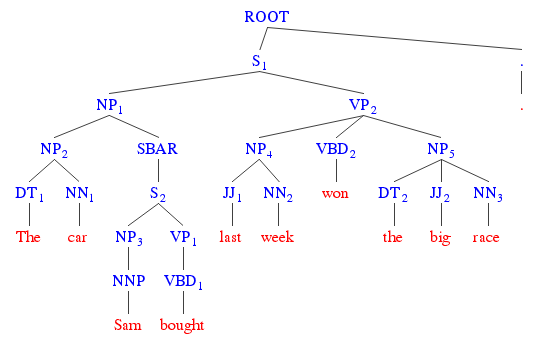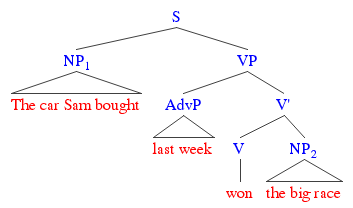I am not sure where to put the AdvP in this sentence when drawing a phrase structure tree.
This is the sentence I would like to create the tree for: "The car Sam bought last week won the big race."
This sentence has two possible meanings.The meaning I am concentrating on is: 'The car won last week' (not 'Sam bought the car last week'). Big thanks.


